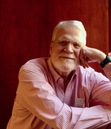Nuremberg Trials
From 1945-46, judges from Great Britain, France, USSR and USA presided over the Nuremberg trials of 24 prominent Nazis charged with war crimes.
Charges included:
crimes against peace—defined as participation in the planning and waging of a war of aggression in violation of numerous international treaties
war crimes—defined as violations of the internationally agreed upon rules for waging war
crimes against humanity—including murder, extermination, enslavement, deportation, and other inhumane acts committed against any civilian population, before or during the war; or persecution on political, racial, or religious grounds in execution of or in connection with any crime within the jurisdiction of the Tribunal, whether or not in violation of domestic law of the country where perpetrated.

LEADING NAZI OFFICIALS INDICTED FOR WAR CRIMES included:
Hermann Goering (Hitler’s heir designate)
Rudolf Hess (deputy leader of the Nazi party)
Joachim von Ribbentrop (foreign minister)
Wilhelm Keitel (head of the armed forces)
Wilhelm Frick (minister of the interior)
Ernst Kaltenbrunner (head of security forces)
Hans Frank (governor-general of occupied Poland)
Konstantin von Neurath (governor of Bohemia and Moravia)
Erich Raeder (head of the navy)
Karl Doenitz (Raeder’s successor)
Alfred Jodl (armed forces command)
Alfred Rosenberg (minister for occupied eastern territories)
Baldur von Schirach (head of the Hitler Youth)
Julius Streicher (radical Nazi antisemitic publisher)
Fritz Sauckel (head of forced-labor allocation)
Albert Speer (armaments minister)
Arthur Seyss-Inquart (commissioner for the occupied Netherlands)
Martin Bormann (Hitler’s adjutant) was tried in absentia
OCTOBER 1, 1946 VERDICTS AT NUREMBERG:
death sentence for Goering, Ribbentrop, Keitel, Kaltenbrunner, Rosenberg, Frank, Frick, Streicher, Sauckel, Jodl, SeyssInquart, and Bormann
life imprisonment for Hess, economics minister Walther Funk, and Raeder
prison terms ranging from 10 to 20 years for Doenitz, Schirach, Speer, and Neurath
acquitted were Hjalmar Schacht (economics minister), Franz von Papen (politician) and Hans Fritzsche (head of press and radio)
The death sentences were carried out on October 16, 1946, with two exceptions: Goering (committed suicide in his cell) and Bormann (remained missing, but was later proven to have committed suicide to avoid capture)
the seven major war criminals sentenced to prison terms were remanded to the Spandau Prison in Berlin
Although the legality of the Nuremberg trials remains controversial, many feel they set an important precedent for dealing with genocide and other crimes against humanity.
The post Nuremberg Trials appeared first on Enemy in the Mirror.
Published on October 26, 2017 04:00
No comments have been added yet.
Enemy in the Mirror
This website www.enemyinmirror.com explores the consciousness, diplomacy, emotion, prejudice and psychology of 20th Century America and her enemies in wartime.
I began by posting events around the turn This website www.enemyinmirror.com explores the consciousness, diplomacy, emotion, prejudice and psychology of 20th Century America and her enemies in wartime.
I began by posting events around the turn of the 20th century as I was researching my first novel about the Pacific War. I continued through WWII for my second novel about the Battle of the Atlantic. Now I am beginning to look at the Cold War as I gather information for my next novel about the Korean War. ...more
I began by posting events around the turn This website www.enemyinmirror.com explores the consciousness, diplomacy, emotion, prejudice and psychology of 20th Century America and her enemies in wartime.
I began by posting events around the turn of the 20th century as I was researching my first novel about the Pacific War. I continued through WWII for my second novel about the Battle of the Atlantic. Now I am beginning to look at the Cold War as I gather information for my next novel about the Korean War. ...more
- Mark Scott Smith's profile
- 7 followers



